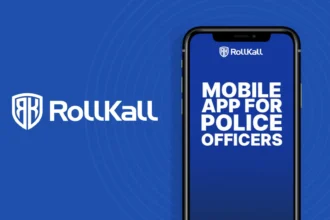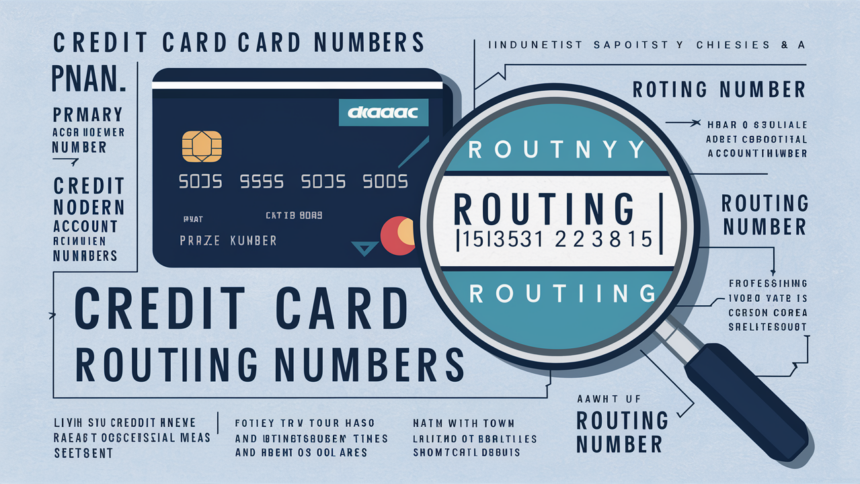You have probably seen routing numbers on checks or bank bills and asked, “Does a credit card have a routing number? Simply said, the response is no; it doesn’t Although they are financial tools, credit cards, and bank accounts have different uses and run on different systems. Let’s probe the causes of this difference.
Knowledge of Routing Numbers
Understanding their purpose can help one to investigate why credit cards avoid routing numbers. Officially referred to as an ABA number, a routing number is a nine-digit code used by American banks to identify financial organizations. Processing electronic financial transfers (EFTs) including direct deposits, bill payments, and wire transfers depends on this numerical identification. For financial institutions, it serves as essentially their postal code, guiding money to the right place.
The Part Credit Card Numbers Play
Credit cards operate on different principles than bank accounts. Using a credit card means you are effectively borrowing money from the issuing bank. The credit card number etched on your front-of-sale card contains important data including:
Identity of issuer: The first numbers identify the issuing bank and the card network—Visa, Mastercard, American Express, etc.).
- Account number: This unique series identifies your specific credit card account.
- Check digit: The final digit is a mathematical calculation that is intended to verify the integrity of the card number.
Why Routing Numbers Are Not Required for Credit Cards
A sophisticated network of linked companies, such as banks, stores, and payment processing corporations, is responsible for credit card transactions. Making a purchase involves a sequence of well-timed actions:
- Authorization: The merchant sends your credit card data to the Visa, Mastercard, etc. card network.
- Verification: To guarantee the card’s validity and available credit, the card network talks with the issuing bank.
- Authorization approval or decline: The card network tells the retailer an authorization approval or decline message.
- Settlement: After purchase completion, the issuing bank sends money to the merchant’s bank.
Credit card transactions run within a closed-loop system whereby the card number, together with other necessary information, suffices for payment processing. There is no need for a routing number since the transaction does not entail fund movement across bank accounts.
Additional Considerations
Credit card absence of a routing number adds to increased security. Linking routing numbers to bank accounts—which can include private financial information—allows one to Although important, credit card numbers provide less chance of identity theft should they be hacked.
Credit cards provide a user-friendly payment option free of the need to know several account details and routing numbers.
Credit card advantages
Used sensibly, credit cards have several benefits. These are ten main advantages:
- Reward Points and Cashback: Many credit cards grant cashback or reward points on your transactions. These can be used for vacation, goods, or even statement credits, so transforming your purchases into savings.
- Build Credit History: The use of responsible credit cards helps build and raise your credit score. Good credit allows one to access better financial prospects including mortgages with reasonable interest rates and loans.
- Purchase Protection: Several credit cards guard against theft or damage. When making big purchases, this can provide mental clarity.
- Emergency Funds: Credit cards might be a temporary financial safety net in case of unanticipated costs. To prevent building debt, nevertheless, you must control your expenditure and pay off the balance right away.
- Convenience: Credit cards are generally accepted, hence they are easy for both offline and online purchases. They also do away with the necessity of carrying a lot of cash.
- Travel Benefits: Many credit cards provide travel benefits including access to airport lounges, travel insurance, baggage delay protection, and even points good for hotel stays or air tickets.
- Dispute Resolution: If you have problems with a purchase, your credit card provider can usually help to resolve conflicts with the retailer, therefore adding still another degree of safety.
- Emergency Medical Coverage: Certain credit cards provide an extra degree of protection by including emergency medical and evacuation coverage while on the trip.
- Extended Warranties: Many credit cards automatically extend the manufacturer’s warranty on qualified purchases, providing you with more peace of mind.
- Concierge Services: High-end credit cards sometimes include access to concierge services, which help with chores including travel planning, reservation making, and event organizing.
Conclusion
Bank accounts are completely dependent on routing numbers, even though credit cards operate on a different system that does not require routing numbers to execute transactions. When you are aware of this fundamental distinction, you can better safeguard your personal information and make prudent choices regarding your finances.
FAQs
Can I direct deposit using my credit card number?
Direct deposit cannot be accomplished with credit card numbers. Direct deposits call for a bank account number and routing number.
Does having my credit card number without the routing number create a security concern?
Although your credit card number raises security issues, overall it’s not as dangerous as having both your credit card number and routing number. Measures of credit card fraud protection help to reduce risks.
Using a routing number, may one move money from my credit card to another bank account?
A routing number is not sufficient for you to move money from a credit card to a bank account. Designed for purchases, credit cards do not fund transfers between accounts.
Why might some people mix routing numbers with credit card numbers?
Both of their numerical characteristics could lead to uncertainty. Still, they have diverse uses and run under separate financial systems.
Could I make online payments using my credit card number without a routing number?
You can make online payments using your credit card information without supplying a routing number. Bank transfers requiring routing numbers are handled through a separate network from credit card transactions.
Are there any situations when a credit card could call for a routing number?
A credit card would not call for a routing number to complete a payment in any one instance. The credit card network manages the transaction devoid of a routing number.
How might I guard my credit card number from illegal use?
Share your credit card number only with trusted retailers or service providers; otherwise, keep it private. Check your credit card statements often for any unauthorized charges; notify your card issuer of suspected activity right away.
About routing numbers, what distinguishes a credit card from a debit card?
A debit card calls for a routing number and is connected to your bank account. Credit cards neither depend on a routing number nor are connected to bank accounts.
Can one obtain a cash advance using a credit card without a routing number?
You can receive a cash advance with your credit card indeed. Usually, though, this comes with higher interest rates and expenses than with ordinary transactions. Cash advances handled via the credit card network do not call for a routing number.





